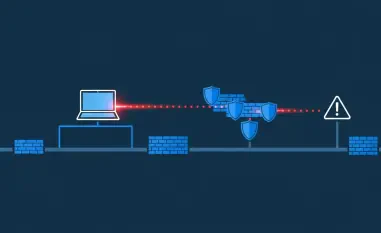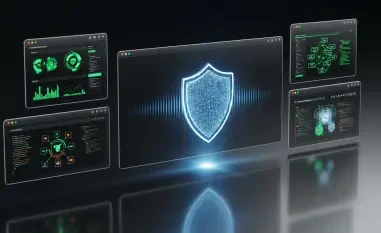As surprising as it may sound, the humble automatic tank gauge at a gas station could be a gateway for cybercriminals. In today’s interconnected world, where approximately 50,000 to 100,000 internet-connected fuel gauges exist globally, these mundane devices are potentially at risk. The vulnerabilities lurking in these everyday systems pose significant security challenges, often overlooked by business owners and operators.
The Importance of Cybersecurity in Fuel Management
The digital era has ushered in a reliance on automated systems for managing critical infrastructure, including gas stations. Cybersecurity in fuel management is vital to safeguard societal and economic stability. Networked systems, intended to optimize operations, reveal themselves as potential entry points for cyber-attacks. Recent cyber incidents affecting infrastructure globally underscore the importance of fortifying security measures. The interconnected nature of these systems means that a security lapse could lead to not only financial losses but also potentially endanger public safety.
Unveiling the Vulnerabilities in Fuel Gauge Systems
Internet-connected automatic tank gauges (ATGs) cannot escape scrutiny. Reports reveal that such systems often face exposure through TCP port 10001, lacking stringent security protocols or protective measures. This vulnerability allows attackers to manipulate data, affect operational functions, or even damage essential peripherals linked to the system. These risks extend beyond theoretical predictions, with real incidents showing hackers exploiting weak points to disrupt fueling operations.
Expert Insights into the Threat Landscape
Cybersecurity specialist Pedro Umbelino, speaking at the 2025 RSA Conference, highlighted these vulnerabilities’ potential consequences. His findings, along with research by firms like BitSight, indicate that exposure has increased alarmingly. When such vulnerabilities are exploited, systems can be severely impacted. Historian HD Moore long warned of these threats, indicating a pattern of escalating risk over the years. Professional anecdotes serve as cautionary tales of the urgency to address these weaknesses.
Proactive Strategies to Secure Fuel Systems
To combat these risks, industry experts recommend comprehensive measures to bolster system security. Practical suggestions involve adopting robust security protocols, regularly auditing systems, and ensuring software updates. Gas stations and fuel depots can implement frameworks focused on improving cybersecurity posture. Investment in digital security and collaboration among stakeholders are fundamental steps to prevent potential disruptions and mitigate risks.
Toward a Secure Future
Addressing vulnerabilities in gas stations’ fuel gauge systems is not just an immediate necessity; it demands a shift in priorities. Those in the industry understand that achieving optimal security is challenging, recognizing the need for proactive steps to safeguard operations. As systems and infrastructures grow increasingly automated, the threat landscape expands, emphasizing the importance of ongoing vigilance and innovation in cybersecurity strategies.













